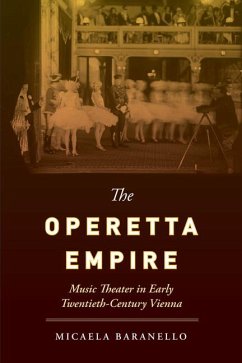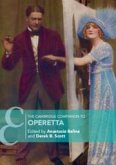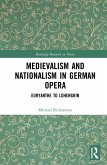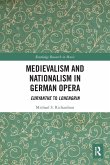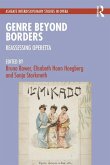"Vienna's 'Silver Age' operetta was simultaneously a successful international culture industry and a distillation of the city's multiethnic local identities, a sentimental escapist entertainment and an increasingly ambitious art. Micaela Baranello captures the glamorous yet contested nature of this long-dismissed genre through a sophisticated explication of the creation and reception of some of twentieth-century Europe's most popular theatrical works."--Lynn M. Hooker, author of Redefining Hungarian Music from Liszt to Bartók "A pioneering study of twentieth-century Viennese operetta that shows the limits of, and presents a much-needed challenge to, the musicological fixation on high-status musical modernism in Vienna."--Derek B. Scott, author of German Operetta on Broadway and in the West End, 1900-1940 "In this well-researched volume, Baranello celebrates the extraordinary nature and significance of early twentieth-century Viennese operetta, a repertory clearly deserving of such an investigation. Her work is destined to occupy a prominent place in the expanding literature on musical theater in general and operetta in particular."--William A. Everett, author of Sigmund Romberg
Hinweis: Dieser Artikel kann nur an eine deutsche Lieferadresse ausgeliefert werden.
Hinweis: Dieser Artikel kann nur an eine deutsche Lieferadresse ausgeliefert werden.

